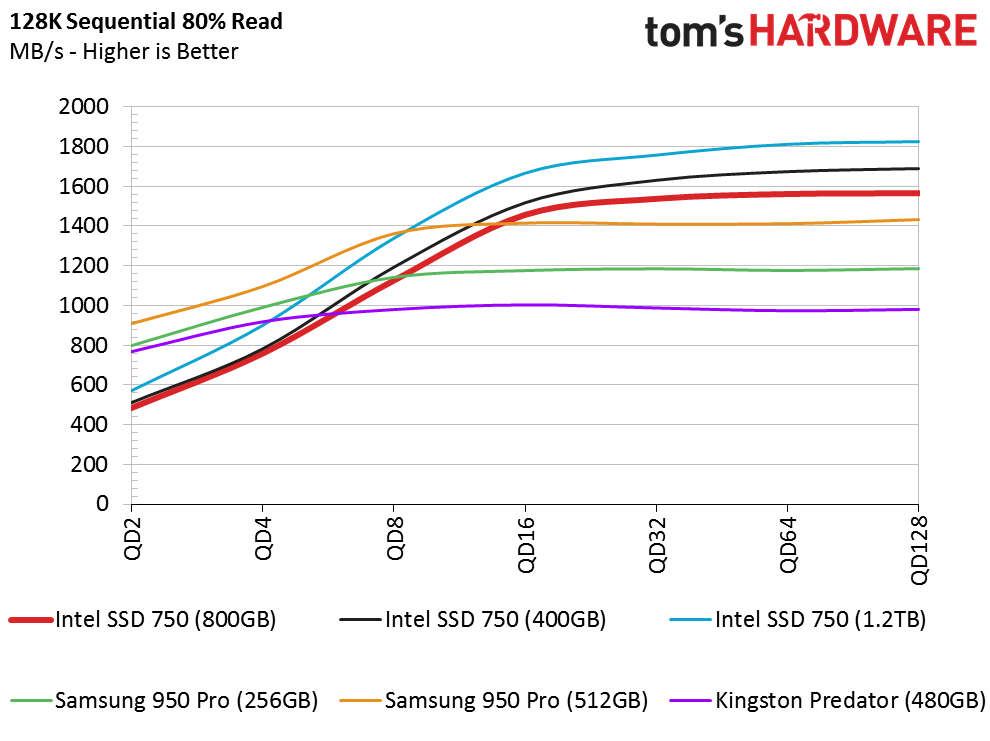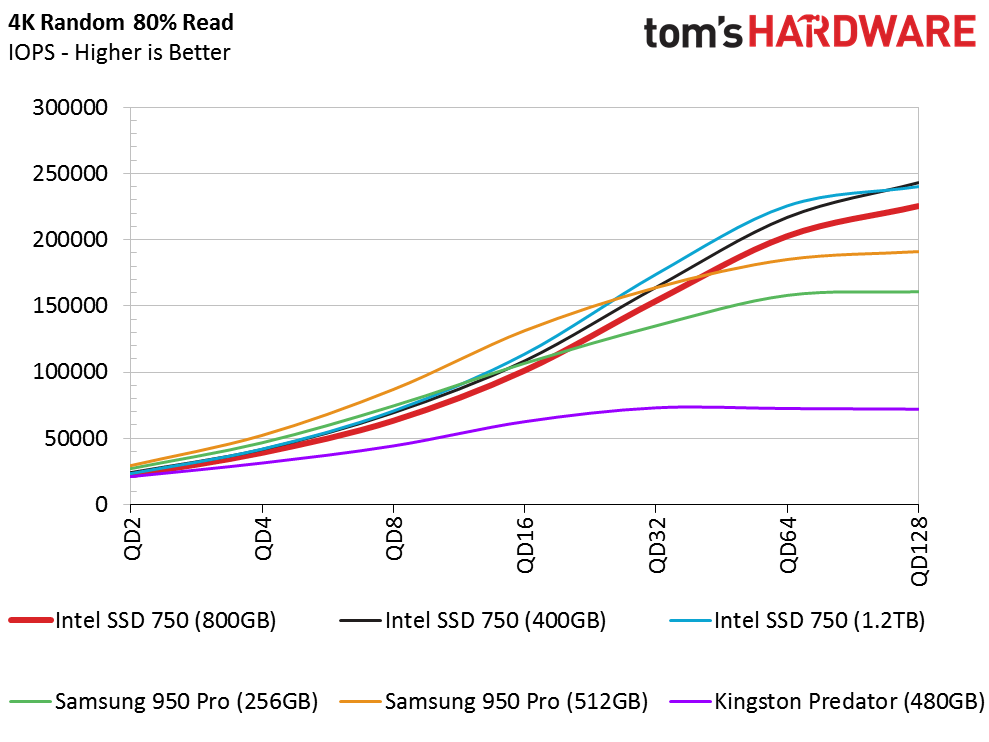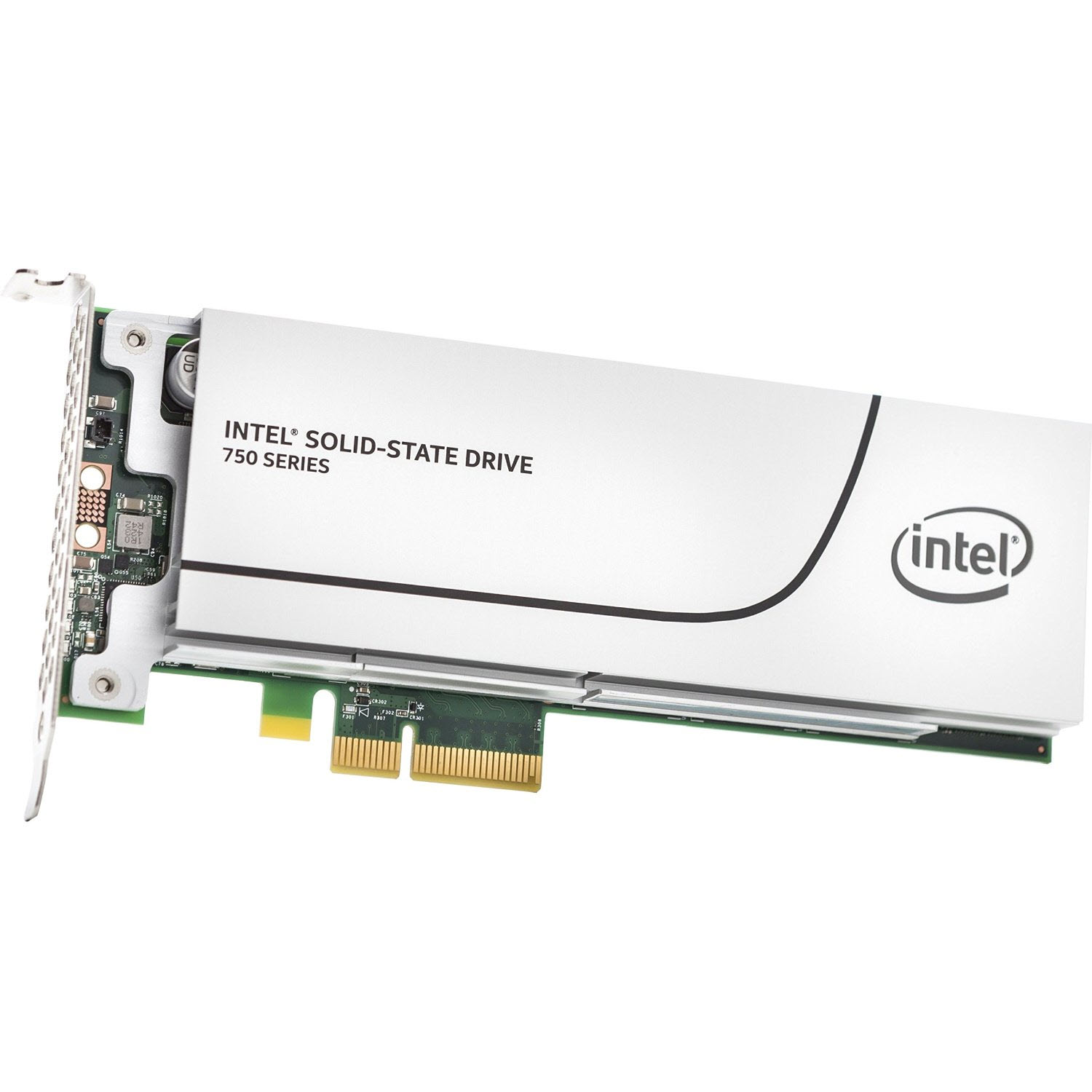Intel 750 Series 800GB NVMe PCIe SSD Review
Why you can trust Tom's Hardware
Mixed Workloads And Steady State
80 Percent Sequential Mixed Workload
Our mixed workload testing is described in detail here, and our steady state tests are described here.
In mixed workloads consisting of 80 percent reads, Intel's SSD 750s perform particularly well at high queue depths. With fewer outstanding commands to keep them busy, the drives show up below Samsung and Kingston in our chart. Those sequential write issues we were seeing at a queue depth of two probably play a role here.
The 800GB SSD 750 is the slowest drive in its family, and yet it remains competitive with the other Intel NVMe-based desktop products.
80 Percent Random Mixed Workload
Impressive random performance carries over to the SSD 750's showing in mixed workloads, though the 512GB Samsung 950 Pro is a little faster while using a lot less power. But Intel has a capacity advantage, and that means more to many enthusiasts.
Random Write Steady State
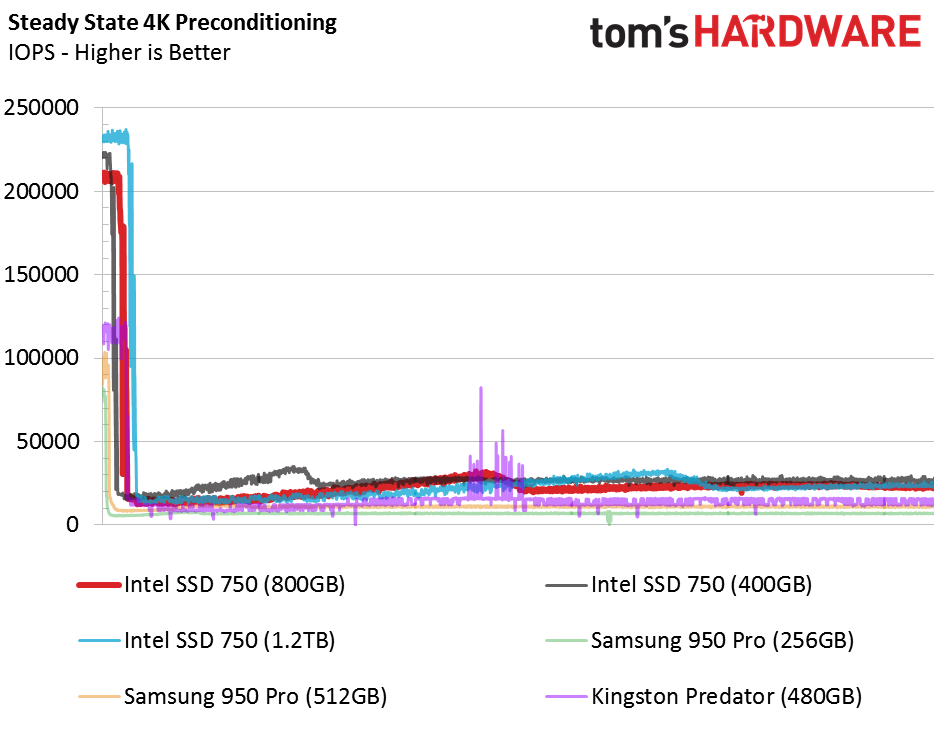
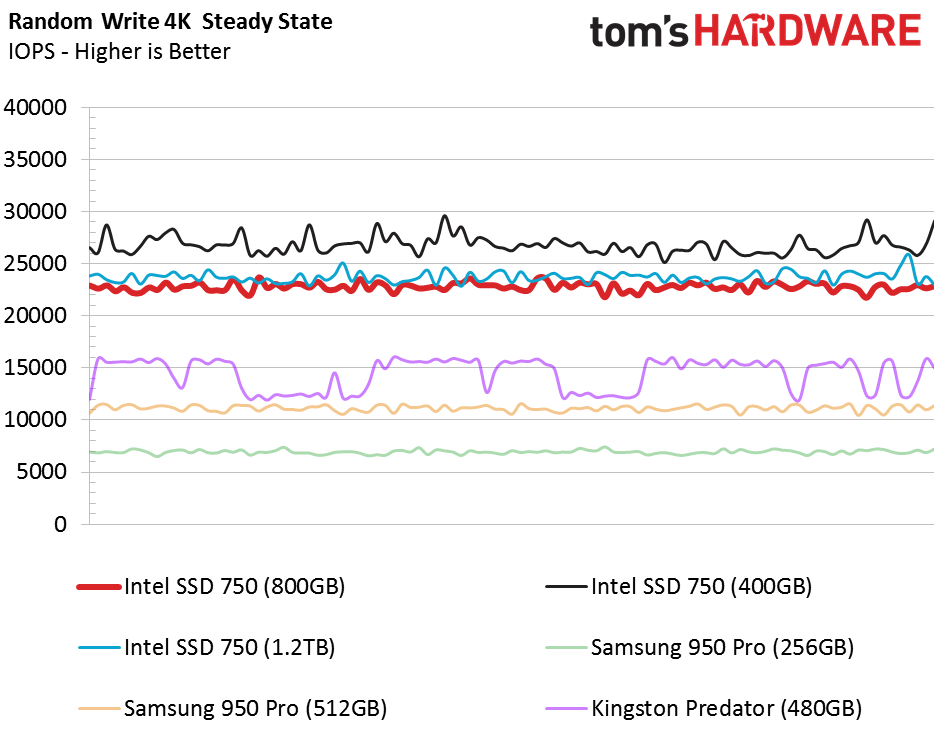
Intel's last two high-profile desktop SSD launches focused on sustained performance. This is an area where the company does well with its SATA- and PCIe-based drives. A consistent random write profile means your PC won't slow down as the SSD 750 fills up. This drive is also the best available for use in RAID arrays, where fluctuations are magnified and actually hurt performance.
Sequential Steady State
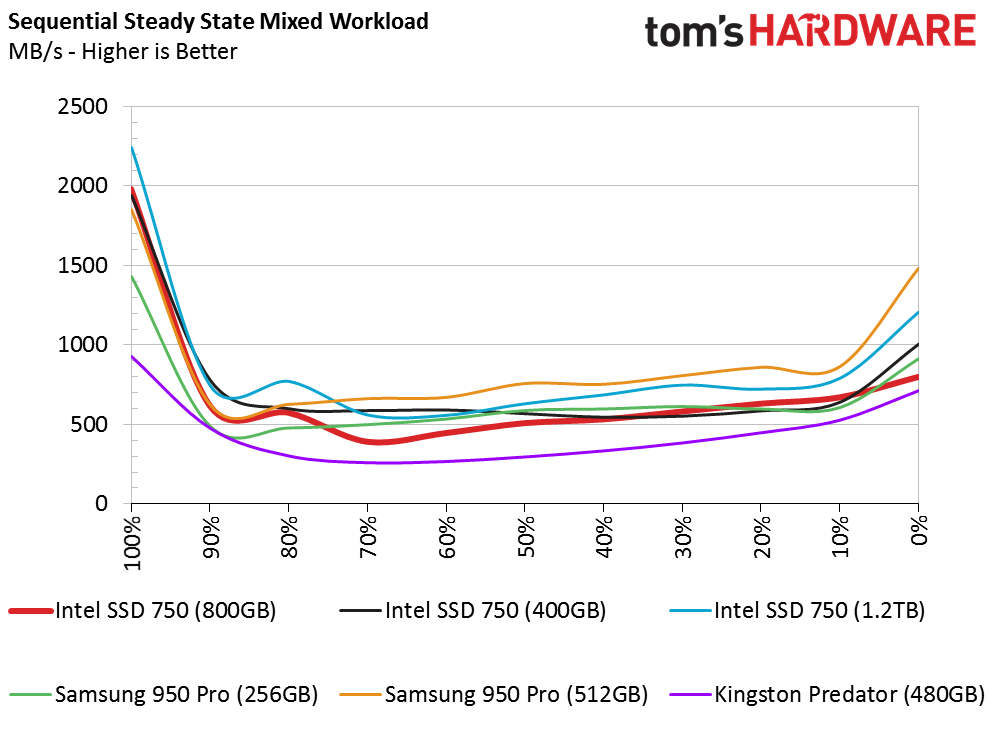
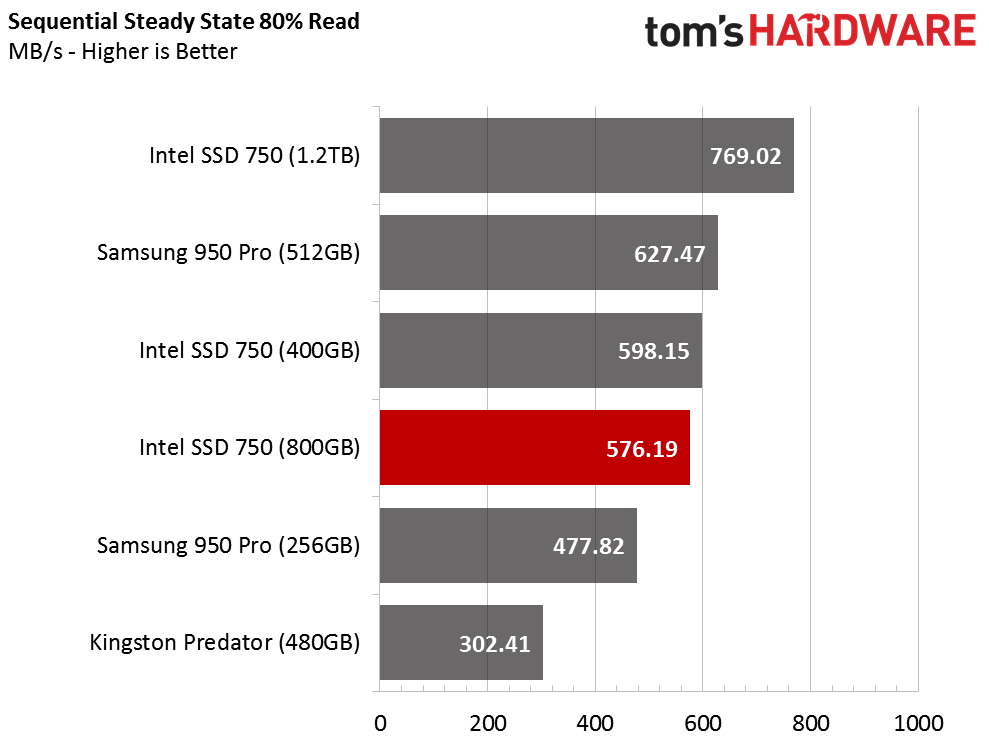
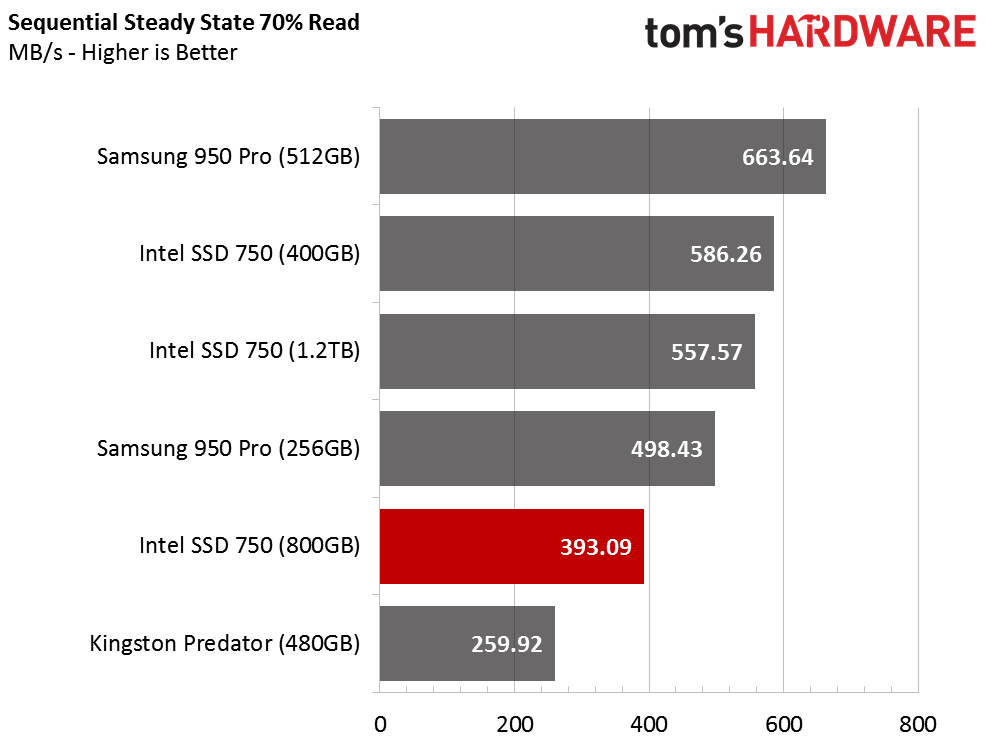
We also benchmarked the drives in steady state using a sweep pattern shifting from all reads to all writes in 10 percent increments. The NVMe-based drives do well in these metrics. Specifically, Intel's 800GB SSD 750 trails its family members, achieving performance closer to the 400GB model than the 1.2TB version.
Get Tom's Hardware's best news and in-depth reviews, straight to your inbox.
Current page: Mixed Workloads And Steady State
Prev Page Four-Corner Performance Testing Next Page Real-World Application Performance
Chris Ramseyer was a senior contributing editor for Tom's Hardware. He tested and reviewed consumer storage.
-
robodan918 Having owned the Samsung 950 Pro 512GB for a month now, I can say I'm consistently impressed and considering the price difference (I bought it for 167GBP / ~$240USD on an amazing sale) I can't justify the jump in price to the Intel 750 - even if random IOPS are nearly 2x higher. It'd probably be the difference of a blink of an eye. Still, as the 950 Pro is replacing an Intel 730, I can tell you that I've also been consistently impressed with Intel. If and when they go on sale, I usually end up convincing myself to buy them too.Reply -
Hanin33 is it me or is 70GB WPD abysmally low? especially for a 1.2TB drive. i suppose this drive series is not meant for high resolution video editing...Reply -
jchang6 there is problem in the mismatch of motherboards and PCI-E SSDs. The Xeon E3 motherboards may have 2 x8 slots, and the E5 boards might be 5x8 per socket, but more likely there is a combination of fewer slots, some x16, whereas all the affordable SSDs are x4, note that the P3608 is much more expensive. Could Intel put 2 750's on one x8 card, one connected to the lower x4 and the second to the upper x4? Alternatively, it would be nice if we could get an adapter for 2 M.2 to PCI-E x8.Reply -
rantoc So the Samsung 950 pro bets the intel 750 in low queue depths ie normal desktop workload (application starts and the like) and 750 beats 950 in higher qd's, both have their uses. Whats i like about my 950 pro over my 750 is its price/performance for desktop workloads.Reply -
hixbot I can't justify spending money on an ultra high-end SSD when Intel Optane is around the corner.Reply
